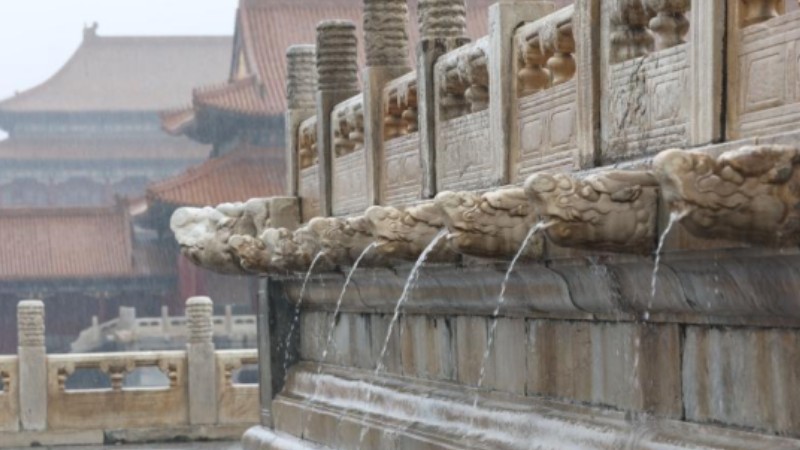Cutting-edge technology empowers 'smart' Chengdu Universiade

A photo shows the Sci-tech Services Workstation at the Universiade Village, Chengdu, capital city of southwest China's Sichuan Province. (Photo/Chengdu Daily)
More than 170 high-tech products have been deployed at over 30 venues to offer technological support for the 31st International University Sports Federation (FISU) Summer World University Games, or the Chengdu Universiade, which kicked off on July 28 in Chengdu, capital city of southwest China's Sichuan Province.
The concept of a "Smart" Universiade is a key feature of the Games. The opening ceremony, held at Dong'an Lake Sports Park Stadium, blended technological innovation with artistic splendor.
Leveraging technology, vibrant silk threads and Shu embroidery patterns, emblematic of Chengdu's cultural heritage, were projected onto the stadium's track during the athletes' parade at the opening ceremony, symbolizing the athletes' magnificent journey.
"This symbolic imagery represented the aspirations of young athletes from around the world," said Chen Weiya, chief director of the Chengdu Universiade opening ceremony.
The production team developed 40 laser gears to create the visual effects, according to Wang Ruixiang, general producer of the opening ceremony. Additionally, the team engineered an intelligent control device for aerial stunts. This device, tailored to the stadium's architectural features, helped produce the ideal artistic effects and represented the vigor and vitality of university students.

A photo shows a digital platform at the Phoenix Hill Sports Park, home to a venue for the Chengdu Universiade in Chengdu, capital city of southwest China's Sichuan Province. (Photo/Chengdu Daily)
The Phoenix Hill Sports Park, home to the Chengdu Universiade's basketball venue, features a smart energy management system. This digital "brain" enhances the venue's operational efficiency.
The system helps reduce overall energy consumption by around 15 percent and cuts the cost of operation and maintenance personnel by about 60 percent. Due to the large number of sensors, the system can effectively manage the venue's energy consumption. It adjusts the use of water, electricity and gas based on a comprehensive analysis of data collected by these sensors.
The Jianyang Culture and Sports Center, the host venue for diving, judo and other Universiade events, is equipped with a "fire control brain." In the event of an emergency, this system can indicate a clear evacuation route marked by flashing indicator lights.
This optimal evacuation route is automatically generated by the intelligent system that controls 2,690 sets of emergency lights, adjusting them based on different alarm points to ensure spectators can be guided to safety as quickly as possible.
A medical robot model named "Rongbao," sharing its name with the Chengdu Universiade's panda mascot, has been deployed at many venues. It can deliver emergency kits, defibrillators, and other medical emergency tools.
Upon receiving an emergency call, Rongbao can promptly rush to the location, automatically open its first aid kit, and display a tutorial video for using the defibrillator. It can establish remote video connections with medical experts for professional guidance. Moreover, it can also provide intelligent services such as guidance, broadcasting information, language translation, remote call initiation, and consultation.

A staff member demonstrates a cooling vest at the Universiade Village in Chengdu, capital city of southwest China's Sichuan Province. (Photo/Chengdu Daily)
At the Sci-tech Services Workstation of the Universiade Village, volunteers are equipped with cooling vests made of phase-change material (PCM), a type of material used in aerospace that can provide beneficial heat or cooling.
Volunteers can pre-cool the "cooling bags" of the vests in refrigerators 30 minutes ahead of time and enjoy two hours of outdoor cooling.
A 3D photo booth at the Universiade Village can create lifelike 3D-printed figurines. A participant stands in the booth while 800 photos from various angles are taken within three seconds. With the help of artificial intelligence (AI) technology and cloud modeling technology, these photos are converted into a 3D digital model, which is then turned into a realistic figurine by a full-color 3D printer. Athletes celebrating their birthdays during the Games will receive their own 3D-printed figurines free of charge as unique birthday gifts.

A photo shows a self-driving bus at the Universiade Village in Chengdu, capital city of southwest China's Sichuan Province. (Photo/Chengdu Daily)
Additionally, 24-hour intelligent snack machines and AI coffee-making robots with dual arms offer convenient services for athletes.
New energy self-driving buses, outfitted with a vehicle-road-cloud integration system, are providing shuttle services at the Universiade Village during the Games. These buses feature 360-degree visibility without blind spots and a reaction time of 0.1 seconds - three times faster than the average human driver.
Photos
Related Stories
- Advanced tech enhances athlete experience at Chengdu Universiade
- Chengdu Universiade champions low-carbon practices with 'Magic Cube'
- Futuristic technology showcased at Chengdu Universiade: 3D-printed figurines
- New energy self-driving buses debut at Chengdu Universiade Village
- Counting down to Chengdu Universiade: Dong'an Lake Sports Park
Copyright © 2023 People's Daily Online. All Rights Reserved.









